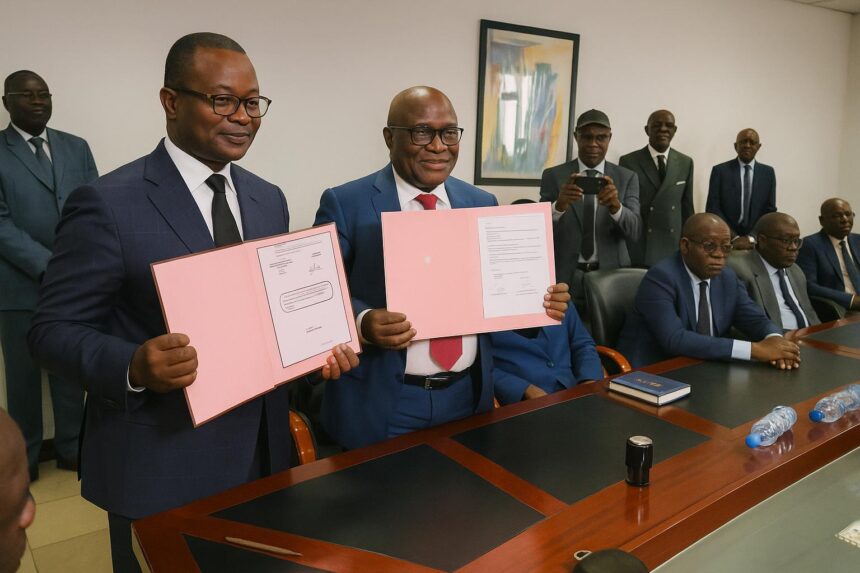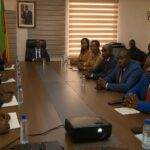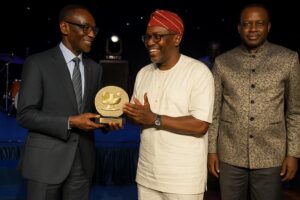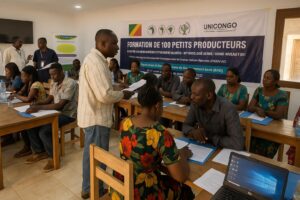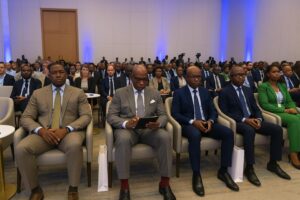Historic Signature in Brazzaville
Under the calm late-August sky, representatives of Congo’s flagship daily La Nouvelle République and the Congrès des chefs d’entreprises du Congo, CCEC, gathered at the Ministry of Communication headquarters in Brazzaville to sign a strategic partnership on Wednesday 27 August 2025.
Antoine Ethai Oviebo, chief of staff to the Minister of Communication and Media, personally supervised the ceremony, underscoring government interest in alliances that bring together newsrooms and boardrooms for the nation’s economic acceleration.
Goals: Visibility and Transparency
The freshly inked contract states a clear ambition: combine the CCEC’s business insight with La Nouvelle République’s information reach to foster innovation, improve corporate transparency and project Congolese enterprises onto regional and international radars.
Signatories pointed out that many promising firms still struggle for media exposure despite solid balance sheets; the partnership promises curated coverage, sector reports and data-driven stories that can attract investors while informing citizens.
Voices From the Ceremony
Paul Nestor Mouandzibi Ndinga, president of the CCEC, framed the deal as ‘a natural alliance’ because, in his words, ‘media serve as vectors of democracy, transparency and social cohesion, the indispensable relay between institutions, companies and civil society’.
Anasth Wilfrid Mbossa, director-general of La Nouvelle République, echoed that sentiment, stressing that ‘in this signature there is no loser; it is a win-win arrangement’ that harnesses the complementary strengths of journalists and entrepreneurs.
Observers at the event said the presence of ministry officials lent institutional weight, suggesting future public-private initiatives may follow if the pilot collaboration meets its milestones.
Media House With Digital Vision
La Nouvelle République’s history, recounted by Mbossa, spans a 1998 decree that merged the daily Mweti, the monthly Congo Magazine and the sports journal Le Stade into a single national group now present in print, online and on streaming television.
Flagship retro columns such as ‘Mweti a vu’ still resonate with readers, yet the newsroom has shifted decisively toward smartphones and social networks, operating an all-hours website, lanouvellerepublique.cg, plus the web channel NRTV for video-first audiences.
International tie-ups with C-Direct, Russia Today, Sputnik, Fraternité Matin, Jornal de Angola and Le Quotidien du Peuple further widen its content horizons, while domestic stories continue to air on the national television and radio services.
A Growing Web of Alliances
The CCEC agreement arrives only days after La Nouvelle République inked a cooperation accord on 22 August 2025 with the Institut supérieur polytechnique-Universitaire, paving pathways for student internships and bespoke training for editorial staff.
Management says multiplying partnerships allows the newsroom to keep pace with technological change while anchoring itself firmly to the country’s development agenda set out by national planners.
From the business side, CCEC members anticipate a structured channel for press releases, economic round-ups and sector snapshots that can help entrepreneurs navigate both domestic regulations and emerging African Continental Free Trade Area opportunities.
Looking Toward Shared Prosperity
Analysts interviewed after the signing agree that, in an era of rapid information cycles, credible press coverage can move capital as quickly as it shapes public opinion, making media-business symbiosis a lever for inclusive growth.
Yet speakers insisted editorial independence remains non-negotiable; Mbossa underlined that reportage will continue to observe professional standards even while showcasing industrial success stories.
With the contract now filed, implementation teams from both institutions are expected to craft a calendar of joint events, thematic supplements and digital forums before year’s end, offering the first tangible fruits of the alliance to readers and entrepreneurs alike.
If successful, observers predict the model could inspire similar collaborations across Central Africa, reinforcing Congo-Brazzaville’s ambition to act as a communication hub for the wider region.
Context Within National Media Strategy
Government communications advisers emphasise that partnerships of this nature dovetail with the national digital strategy unveiled earlier in the decade, which encourages state bodies and private actors to pool content resources for better reach and cost efficiency.
In that framework, La Nouvelle République’s multiplatform capabilities allow ministries to circulate public information swiftly, while companies can benefit from the same distribution backbone for product launches, market analyses and sustainability reporting.
The CCEC, grouping a cross-section of industry leaders from mining to fintech, views media competence as vital for meeting environmental, social and governance benchmarks increasingly demanded by continental lenders and rating agencies.
Analyst Guy-Noël Okelani of the think-tank Observatoire Économique du Congo argued that ‘by aligning press professionalism with corporate disclosure, the country strengthens its position in regional value chains and reassures investors about policy predictability’.
Beyond the economic rationale, cultural resonance matters; La Nouvelle République intends to spotlight entrepreneurial stories in local languages alongside French, a move expected to deepen engagement among younger audiences and diaspora communities following developments from Kinshasa to Paris.
Timeline for Delivery
Project coordinators said a joint editorial calendar should be ratified within thirty days, with the first special business supplement slated for November and a televised economic forum pencilled into the early 2026 broadcast schedule.

